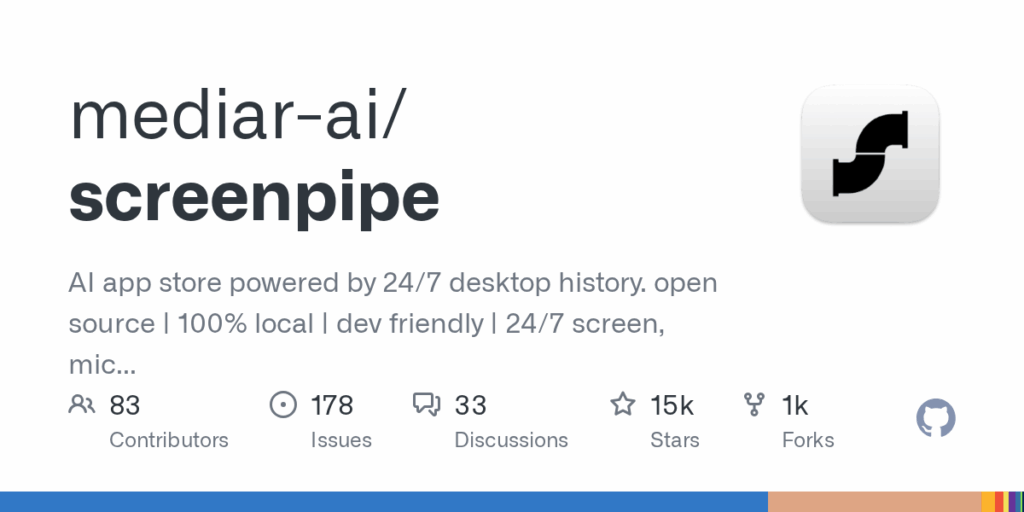screenpipe
Basic Information
screenpipe is an open source developer platform and AI app store that captures a user’s desktop context 24/7 and enables developers to build, sandbox, publish, and monetize desktop AI apps. The project records screen and microphone activity locally and indexes that history into an API so applications can use rich, continuous context. It provides a desktop app and a command line installer, cross-platform support for macOS, Linux and Windows, and a plugin system called "pipe" that runs Next.js apps inside a sandboxed Rust environment. Developers can create pipes, register and publish them to the store, and integrate monetization. The README emphasizes privacy and local-first processing, lists resource figures for recording, and points to templates and community resources for building native desktop integrations.








